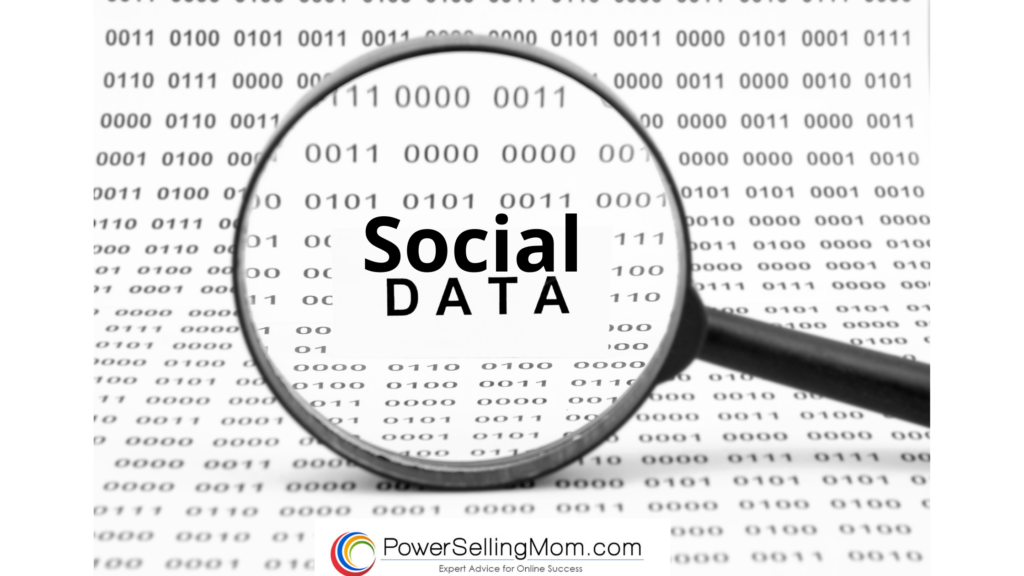These days the online presence of all users is tracked and stored on servers. Marketers use this data for enhancing advertising campaigns and making them more efficient. They use the accumulated information for showing personalized ads to their target audience.

However, is it safe to share your data with marketers? Let’s take a deep dive and learn more about the personal information that marketers collect and use.
What Is Personal Information?
For starters, let’s define what personal information exactly is. In a nutshell, it is all data that identifies you. Marketers know your age, sex, name, location, interests, etc. All this data helps them show your relevant ads.
However, any sensitive information is protected unless you share it with strangers on your behalf. Web browsers and smartphone apps don’t have access to your credit card credentials, passwords, and fingerprints.
Types of Information Used by Marketers
Yet, personal information is a pretty umbrella term that does not indicate what exact information is used and collected. Therefore, let’s review the types of data collected and used by marketers these days.
Personal Data
There are tons of personal information that data-miners collect. It’s the type of information that can allocate your identity. It includes the following:
- age;
- sex;
- name;
- date of birth;
- phone number;
- email address;
- location (country, state, city, ZIP code);
- etc.
The list above isn’t full. All this information is collected from your social media, online activity, data left in contact forms, and third-party apps on your smartphone.

Furthermore, marketers have access to less-identifying information, such as IP-addresses and cookies. Suppose you noticed that most websites alert their users that they collect cookies.
Web developers started adding this notification due to the General Data Protection Regulation (GDPR) implemented in 2018. Unfortunately, even if you always close this message, websites still collect cookies for further interactions.
Engagement Data
This sort of data is your traced interactions with sites, apps, social media, and even ads. This data is not limited by the visited web-pages and clicks made. Marketers also know how much time you spend on particular apps or websites, what articles attract your attention, and what types of ads can catch your eye.

Algorithms measure your online presence and offer you the most relevant ads. For instance, if you’re a student who was surfing the Internet, trying to find a top-tier paper helper, the algorithms will offer your posts with essay writing tips and corresponding apps.
Behavior Data
All your transactions, subscriptions, time spent on sites, and most viewed sites’ elements are also traced. Using heatmaps, marketers can check which blocks on their sites people like and which tend to skip.
Marketers can analyze your behavior on the Internet and build the most effective strategy that will drive you to purchase the desired product. Data miners also trace actions on your smartphone, desktop, and tablet if you use different devices.
Attitudinal Data
All marketers want to know the satisfaction rate, product desirability, preferences, etc. Usually, this type of data is collected with the help of surveys, interviews, and feedback. By way of illustration, most mobile apps ask how users like their installed apps. If they are satisfied, developers drive users to share their positive feedback. Further, algorithms will analyze them and suggest similar apps that you may like.
The Problem of Data Collection
A lot of people are worried that their personal data collection is spying and don’t want others to know their online behavior and locations. However, the majority of users share their private information by their choice. Users allow apps on their devices to track the location, access sensors, and share their data.
Unfortunately, the way businesses use the gathered data isn’t well-regulated. Using various loopholes, apps from third-party companies can trace your behavior in other applications and access your devices’ sensors even when it’s blocked.

Moreover, they sell the mined information to marketers and other companies. It’s illegal to sell personal data. However, companies mask their deals with cooperation agreements. Therefore, your data can be sold to anyone by such companies.
Solutions for Privacy
Sadly, there is no all-in-one solution to increase privacy and decrease the amount of data gathered and used by marketers. For starters, you need to review the access permissions provided to apps on your devices and correct them if needed. According to research, third-party weather and navigation apps are the foremost data miners that trace users’ behavior and sell their personal information.
Using desktops, you can clean cookies on websites manually. You can also reach web-developers and request them to erase any personal information about you from their servers. Anyway, don’t forget to use VPN services, especially when you connect to the Internet via public hotspots to protect your personal information.
Also, both Android and iOS developers are about to release comprehensive tools for increasing privacy. These tools will foresee the opportunity to forbid apps from mining any data at all. The One UI, software overlay on Samsung devices, brings the ability to block all device’s sensors in one tap. This feature can be enabled in the developer’s section.
Bottom Line
Even though privacy is the latest trend, data miners still accumulate tons of information from different sources, including your social media profiles. If you don’t want to receive personalized apps, feel free to disable this setting in your Google account and use recommendations from the post above.
Further Reading
![]()

